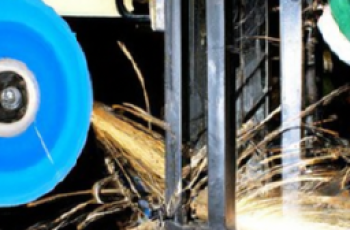If you’re in the market for a heavy-duty die grinder, you may be overwhelmed by the variety of options available. To ensure that you are purchasing a high-quality and reliable tool, it is essential to consider specialized certifications and standards that are specific to this particular type of equipment. In this article, we will explore the importance of these certifications and standards for heavy-duty die grinders, and how they can guarantee safety and performance. Whether you are a professional tradesperson or a hobbyist, understanding these certifications will enable you to make an informed decision when selecting the right die grinder for your needs.
Certifications for Heavy-duty Die Grinders
Importance of Certifications in the Industry
When it comes to heavy-duty die grinders, certifications play a crucial role in ensuring the safety, performance, and environmental standards of these powerful tools. Certifications provide manufacturers, users, and regulatory bodies with a clear indication that a product meets specific requirements and guidelines.
Certifications not only guarantee the quality of the die grinders but also help in reducing the risks associated with their usage. They provide peace of mind to both industrial professionals and consumers, assuring them that the equipment they are using is reliable and safe.
Understanding ANSI and ISO Certifications
Two widely recognized and respected organizations that provide certifications for heavy-duty die grinders are the American National Standards Institute (ANSI) and the International Organization for Standardization (ISO).
ANSI is a non-profit organization that develops and publishes standards for a wide range of products, including heavy-duty die grinders. ANSI certifications ensure that these tools meet stringent safety, performance, and environmental requirements.
ISO, on the other hand, is an international standard-setting body that focuses on developing and promoting worldwide industrial and commercial standards. ISO certifications establish globally accepted criteria for the safety and performance of heavy-duty die grinders.
Certifications for Safety Standards
Safety is paramount when working with heavy-duty die grinders, considering the potential risks involved. Certifications for safety standards help safeguard the user against hazards such as flying debris, electrical malfunctions, and ergonomic issues.
ANSI/B11.9 is a widely recognized safety certification specific to heavy-duty grinding machinery. It establishes guidelines for operators’ protection against hazards associated with grinding and abrasive processes.
ISO 28927 is another important safety certification that specifies the safety requirements for hand-held portable power tools, including die grinders. This certification ensures the ergonomic design and safe operation of these tools.
Certifications for Performance Standards
Performance certifications play a crucial role in determining the effectiveness and reliability of heavy-duty die grinders. These certifications focus on the grinder’s ability to deliver consistent power, maintain speed under load, and withstand harsh operating conditions.
ANSI/UL 60745-1 is a performance standard that sets general requirements for electric tools, including die grinders. This certification ensures that the tool operates safely, efficiently, and performs consistently over time.
ISO 11148 is a series of safety certifications for hand-held non-electric power tools. ISO 11148-3, in particular, pertains to non-electric motor-powered tools and provides test methods to validate their performance and durability.
Certifications for Environmental Standards
In recent years, there has been a growing emphasis on environmental sustainability and the impact of industrial processes and equipment. Certifications for environmental standards ensure that heavy-duty die grinders comply with regulations concerning noise levels, energy consumption, and emissions.
ISO 11148 is an environmental certification that includes provisions for noise emissions from hand-held non-electric power tools. ISO 11148-3 sets limits and measurement methods for noise levels generated by non-electric motor-powered tools such as die grinders.
Certifications like ISO 2409 and ISO 1940 focus on the environmental impact of heavy-duty die grinders in terms of coating and paints and mechanical vibration. These certifications ensure that die grinders meet specific requirements for their impact on the environment.
Standards for Heavy-duty Die Grinders
Role of Standards in Ensuring Quality
Standards are essential in the heavy-duty die grinder industry as they define the quality, safety, and performance requirements of these tools. They provide a benchmark for manufacturers to adhere to and for consumers to rely on when choosing the right equipment.
By establishing common standards, manufacturers can ensure the consistency and interoperability of components, making it easier for users to find compatible accessories and spare parts. Standards also facilitate fair competition among manufacturers and encourage innovation in the industry.
National and International Standards
Standards for heavy-duty die grinders exist at both national and international levels. National standards are developed by organizations within a specific country, whereas international standards are created collaboratively by multiple countries to ensure global harmonization.
National standards, such as ANSI B7.1 and ANSI B11.9, are widely recognized in the United States. These standards provide guidelines for the safe use, care, and protection of grinders and machinery within the country.
International standards, like ISO 28927-1 and ISO 2409, are developed by the International Organization for Standardization (ISO) and are widely accepted worldwide. These standards ensure that heavy-duty die grinders meet consistent requirements regardless of the country they are used in.
American National Standards Institute (ANSI) Standards
The American National Standards Institute (ANSI) is responsible for developing and maintaining a wide range of standards, including those for heavy-duty die grinders. ANSI standards are created through a rigorous consensus process involving industry experts, manufacturers, users, and regulatory bodies.
ANSI B7.1 is a safety code specifically focused on the use, care, and protection of abrasive wheels. Since die grinders often use abrasive wheels, adherence to this standard is vital to ensure safe operation.
ANSI B11.9, as mentioned earlier, is a safety standard dedicated to grinding machinery. It covers various aspects, including the design, construction, installation, operation, and maintenance of grinding equipment, with the ultimate goal of preventing accidents and injuries.
International Organization for Standardization (ISO) Standards
The International Organization for Standardization (ISO) is a highly regarded international standard-setting body that develops and promotes standards for various industries, including heavy-duty die grinders. ISO standards are known for their global acceptance and recognition.
ISO 28927-1 is a test method standard for handheld portable power tools, which includes die grinders. This standard specifies the procedures and equipment required to measure the performance and durability of these tools.
ISO 2409 focuses on the cross-cut test for coatings and paints, ensuring that die grinders meet specific performance requirements in terms of adhesion, resistance to chipping, and durability of applied coatings.
Specific Standards for Die Grinders
Apart from the general safety and performance standards, there are specific standards that address the unique requirements of heavy-duty die grinders. These standards cover aspects such as noise emissions, balance quality, and test methods for non-electric motor-powered tools.
ISO 11148-3 is a certification that sets out test methods for non-electric motor-powered tools, including die grinders. The standard provides guidance on how to test the tools for durability, performance, and safety, helping users select the most reliable equipment.
ISO 1940, on the other hand, is a balance quality requirement for mechanical vibration. This standard ensures that die grinders are well-balanced to minimize vibration and enhance operator comfort during use.

Benefits of Specialized Certifications and Standards
Enhanced Safety Features
Certifications and standards for heavy-duty die grinders focus on ensuring the highest level of safety for operators. By complying with these certifications, manufacturers incorporate enhanced safety features into their products, reducing the risk of accidents and injuries.
Improved Performance
Certifications and standards also contribute to the improved performance of heavy-duty die grinders. By adhering to performance standards, manufacturers are encouraged to develop more efficient and reliable tools that deliver consistent power, maintain speed under load, and withstand harsh conditions.
Compatibility and Interchangeability
Standards promote interoperability among heavy-duty die grinders and accessories from different manufacturers. When manufacturers follow common standards, users have the flexibility to choose accessories and spare parts that are compatible with their die grinders, regardless of the brand.
Increased Product Reliability
Certifications and standards ensure that heavy-duty die grinders meet stringent requirements for durability and reliability. By adhering to these standards, manufacturers are more likely to produce dependable and long-lasting tools that meet the needs of industrial professionals.
Reduced Environmental Impact
The environmental impact of heavy-duty die grinders is a growing concern. Specialized certifications and standards help mitigate this impact by setting guidelines for energy consumption, noise emissions, and other factors that contribute to the environmental footprint of these tools.
Common Certifications for Heavy-duty Die Grinders
ANSI/B11.9: Safety Requirements for Grinding Machinery
ANSI/B11.9 is a safety certification specifically designed for grinding machinery, including heavy-duty die grinders. This certification ensures that the equipment is designed, installed, and operated according to strict safety guidelines to minimize the risk to operators.
ANSI/UL 60745-1: Standard for Electric Tools – General Requirements
This certification covers electric tools in general, including die grinders. ANSI/UL 60745-1 sets forth requirements for the design, construction, and testing of electric tools to ensure their safe operation, protecting users from electrical hazards.
ISO 28927: Hand-held Portable Power Tools – Safety Requirements
ISO 28927 is an international safety certification that specifies the safety requirements for hand-held portable power tools, including heavy-duty die grinders. This certification ensures that these tools are designed with ergonomic features and safe operating mechanisms.
ISO 11148: Hand-held Non-electric Power Tools – Safety Requirements
ISO 11148 is a series of safety certifications that cover various aspects of hand-held non-electric power tools. This certification sets guidelines for the safety and performance requirements of non-electric tools, including die grinders.
ISO 11148-3: Non-electric Motor-powered Tools – Test Methods
ISO 11148-3 is an important certification that provides test methods for non-electric motor-powered tools, such as heavy-duty die grinders. It specifies the procedures and equipment necessary to assess the performance, durability, and safety of these tools.

Common Standards for Heavy-duty Die Grinders
ANSI B7.1: Safety Code for the Use, Care, and Protection of Abrasive Wheels
ANSI B7.1 is a safety code specifically developed for the use, care, and protection of abrasive wheels. Since die grinders often use abrasive wheels, adherence to this standard is essential to prevent accidents and injuries during grinding operations.
ANSI B11.9: Safety Requirements for Grinding Machinery
As mentioned earlier, ANSI B11.9 is a safety standard dedicated to grinding machinery, which includes heavy-duty die grinders. This comprehensive standard covers various aspects to ensure the safe design, installation, operation, and maintenance of grinding equipment.
ISO 28927-1: Hand-held Portable Power Tools – Test Methods
ISO 28927-1 is a test method standard that specifies procedures for testing the performance and durability of hand-held portable power tools, including heavy-duty die grinders. This standard provides a framework for evaluating the quality and reliability of these tools.
ISO 2409: Coating and Paints – Cross-cut Test
ISO 2409 focuses on the cross-cut test for coatings and paints, including those applied to heavy-duty die grinders. This standard ensures that coatings on die grinders have excellent adhesion, resistance to chipping, and durability.
ISO 1940: Mechanical Vibration – Balance Quality Requirements
ISO 1940 is a standard that sets balance quality requirements for mechanical vibration. This standard ensures that heavy-duty die grinders are well-balanced, minimizing vibration and improving operator comfort during use.
Certification and Standard Bodies
American National Standards Institute (ANSI)
The American National Standards Institute (ANSI) is the organization responsible for developing and maintaining a wide range of standards, including those for heavy-duty die grinders. ANSI standards are widely recognized in the United States and provide industry professionals and consumers with confidence in the quality and safety of the tools they use.
International Organization for Standardization (ISO)
The International Organization for Standardization (ISO) is a globally recognized standard-setting body that develops and promotes international standards. ISO certifications ensure that heavy-duty die grinders meet consistent requirements worldwide, allowing users to have confidence in the performance and reliability of these tools.
Underwriters Laboratories (UL)
Underwriters Laboratories (UL) is an independent safety certification organization that evaluates and certifies various products, including heavy-duty die grinders. UL certifications provide assurance that these tools meet rigorous safety requirements, giving users peace of mind.
Canadian Standards Association (CSA)
The Canadian Standards Association (CSA) is a standards development organization that creates and maintains standards for various industries, including heavy-duty die grinders. CSA certifications ensure that these tools are safe, reliable, and suitable for use in Canadian workplaces.
Deutsches Institut für Normung (DIN)
Deutsches Institut für Normung (DIN) is the German national standards organization responsible for creating and promoting standards for various industries. DIN certifications for heavy-duty die grinders guarantee compliance with specific German safety, performance, and environmental requirements.

Choosing Certified Die Grinders
Researching Necessary Certifications and Standards
When selecting a heavy-duty die grinder, it is essential to research the necessary certifications and standards for the intended application. Depending on the industry and usage requirements, certain certifications and standards may be more important than others. Understanding these requirements will facilitate better decision-making.
Checking Manufacturer’s Certifications
To ensure the authenticity of certifications, it is crucial to check the manufacturer’s certifications. Reputable manufacturers will prominently display their certifications on product packaging, websites, or other marketing materials. Verifying these certifications provides confidence that the die grinder meets industry standards.
Looking for Product Labels and Markings
Certified heavy-duty die grinders will often have labels or markings indicating compliance with specific standards. These labels are an easy way to identify whether a product has undergone the necessary testing and meets the required safety, performance, and environmental guidelines.
Confirming Compliance with Applicable Regulations
Apart from certifications and standards, heavy-duty die grinders must also comply with applicable regulations, such as electrical safety requirements or environmental regulations. Confirming compliance with these regulations ensures that the die grinder meets all necessary legal requirements and will function safely within the intended environment.
Reading Reviews and Customer Experiences
Customer reviews and experiences are valuable sources of information when selecting a certified heavy-duty die grinder. Reading reviews from professionals who have already used the equipment provides insights into its performance, durability, and overall user satisfaction. Paying attention to experiences and feedback can help make a well-informed decision.
Accessing Certifications and Standards Information
Online Resources for Certifications and Standards
The internet offers a wealth of resources for accessing certifications and standards information. Websites like ANSI.org and ISO.org provide detailed information about specific standards, certifications, and their requirements. These resources allow users to understand the criteria and guidelines that heavy-duty die grinders must meet.
Official Websites of Certification and Standard Bodies
Official websites of certification and standard bodies, such as ANSI, ISO, UL, CSA, and DIN, provide comprehensive information on the certifications they offer. These websites offer up-to-date information on the latest standards, testing methods, and other relevant resources, ensuring accurate and reliable information.
Manufacturer’s Websites
Manufacturer websites are an excellent source of information on the certifications and standards followed by a specific brand. Many manufacturers provide detailed information about their compliance with safety, performance, and environmental requirements, including downloadable certificates and technical specifications.
Product Catalogs and Brochures
Product catalogs and brochures from manufacturers often contain information about the certifications and standards applicable to their heavy-duty die grinders. These resources provide a convenient way to compare different models and brands, allowing users to make informed decisions based on the specific requirements they need.
Industry Publications and Forums
Industry publications and forums offer insights into the latest developments in certifications and standards for heavy-duty die grinders. Subscribing to relevant trade magazines or participating in online discussion forums can provide access to valuable information shared by professionals and experts in the field.
Future Trends in Certifications and Standards
Advancements in Safety Technologies
As technology advances, certifications and standards for heavy-duty die grinders will continue to adapt and evolve. Innovative safety features like intelligent monitoring systems, integrated safety controls, and advanced protection mechanisms will become an integral part of future certifications, ensuring enhanced operator safety.
Incorporation of IoT and Smart Features
The Internet of Things (IoT) and smart technologies are transforming various industries, including industrial tool manufacturing. It is expected that future certifications and standards for heavy-duty die grinders will encompass IoT connectivity, allowing remote monitoring, predictive maintenance, and enhanced performance optimization.
Growing Focus on Environmental Sustainability
With the increasing global emphasis on environmental sustainability, future certifications and standards for heavy-duty die grinders will place greater importance on energy efficiency, reduced emissions, and environmentally friendly manufacturing processes. Manufacturers will be encouraged to develop eco-friendly tools that minimize the environmental impact.
Global Harmonization of Certifications and Standards
As the world becomes more interconnected, there will be a growing focus on globally harmonized certifications and standards for heavy-duty die grinders. Efforts will be made to align requirements across different countries, facilitating international trade and ensuring consistent quality and safety standards worldwide.
Emerging Technologies and Application-specific Certifications
With the continuous development of new technologies and applications, specialized certifications for specific industries and use cases will emerge. Certifications tailored to the unique requirements of sectors such as aerospace, automotive, and construction will ensure that heavy-duty die grinders meet industry-specific needs and regulations.
Conclusion
Certifications and standards are vital components of the heavy-duty die grinder industry. They ensure the highest levels of safety, performance, and environmental compliance. ANSI and ISO certifications play a significant role in guaranteeing the quality and reliability of these powerful tools.
By adhering to the relevant standards and certifications, manufacturers can enhance the safety features, improve performance, and reduce the environmental impact of heavy-duty die grinders. Users benefit from increased safety, compatibility with accessories, and enhanced product reliability.
When choosing certified die grinders, it is essential to research the necessary certifications, check manufacturer’s certifications, and look for product labels and markings. Accessing information from online resources, official websites of certification bodies, and manufacturer websites will ensure accurate and up-to-date information about certifications and standards.
As the industry continues to evolve, future trends in certifications and standards will focus on advancements in safety technologies, incorporation of IoT and smart features, growing environmental sustainability, global harmonization, and emerging technologies. These trends will shape the future of heavy-duty die grinder certifications, ensuring the continuous improvement and safety of these essential tools.



